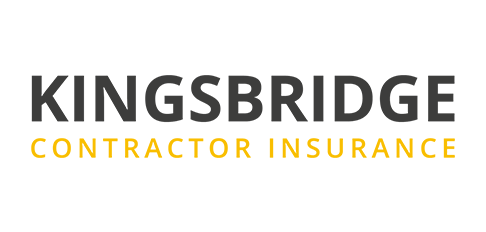Published

Michael Moran
Senior Currency Strategist at ACY
Euro Plunges, AUD Reverses Gains Post RBA, USD/JPY Up see more

Clifford Bennett
Chief Economist at ACY
- 06:00 am

50% of businesses reported that IR35, the UK’s anti-avoidance tax legislation, was the biggest obstacle to hiring contractors over the past 12 months
More than 70% of businesses and recruiters have seen a drop in their limited company PSC contractors since the IR35 reform
Half of contractors in the UK have considered closing their businesses, retiring, or leaving the UK entirely due to IR35 reform
25% of contractors in the UK are seeking work abroad
The IT sector relies heavily on specialist contractor skills, with over 91,470 contractors and freelancers currently working in the industry
HMRC’s Check Employment Status for Tax tool (CEST) is not fit for purpose and is hampering businesses’ growth by blocking access to vital contract labour
One year on, it is clear that the confusion following IR35 reform is stifling access to specialised talent and is having significant ramifications for UK business growth.
This presents a major challenge for businesses in the IT industry, which relies heavily on specialist contractor skills. In fact, IPSE data suggests that there are 91,470 contractors and freelancers working within the sector.
New research by leading insurer and IR35 specialist, Kingsbridge Contractor Insurance, covers views from contractors, recruiters and end clients - businesses that work with contractors - including organisations in the IT sector.
The data shows that, despite Brexit and the COVID pandemic, IR35 was the biggest obstacle to hiring contractors over the past 12 months for 50% of the end clients surveyed. In fact, over 70% of businesses and recruiters reported that they had seen a reduction in their limited company PSC contractor workforce.
End clients and recruiters are struggling to place inside of IR35 roles – positions that are considered as ‘employees’ for tax purposes and therefore are likely to be taxed at a higher rate. More than 70% of contractors are looking only for outside IR35 roles over the next 6 to 12 months, despite these accounting for less than 41% of roles on offer. 66% of contractors have said they would not even consider an inside IR35 role.
As a result, nearly half of contractors have considered closing their businesses, and 25% have sought work outside the UK. The impact for the IT sector is restricted access to a much needed, highly skilled, flexible workforce.
Another obstacle facing IT firms working with contractors is an increase in day rates. The research shows that 65% of contractors would try to negotiate an increased rate if placed inside IR35, with respondents suggesting that this could be up to a 25% increase.
This is already the case for many. 37% of contractors deemed inside IR35 have seen their day-rate increase in the last 12 months, compared to 20% of contractors deemed outside IR35. So, IT businesses are almost twice as likely to have to pay a contractor more to work inside IR35.
Paul Havenhand, CEO of Kingsbridge Contractor Insurance explains: “We have a unique position in the marketplace to be able to see the impact of IR35 from the different perspectives of contractors, recruiters and end clients. The UK economy is being hampered by a severe recruitment crisis, with many IT businesses struggling to fill vital roles. Contractors, as a highly skilled, flexible resource, could be providing a much-needed interim solution to keep things working and avoid major disruption to UK businesses. Yet the complexities of IR35 and perceived risks are putting businesses off.”
The research, which is the focus of a new whitepaper, IR35 – One Year On, reveals that 50% of recruiters feel that end clients were not well prepared for IR35 reform in the private sector. This suggests that further education is required. Too many companies are relying on CEST, despite its limitations, have adopted misguided stances of blanket bans, or are working with umbrella companies through fear of risk.
In fact, using CEST appears to have a direct impact on the decreasing pool of contract labour. 38% of the recruiters who stated their end clients use CEST have seen a 61% or greater reduction in their contractor pool vs 23% who use independent employment status tools.
Andy Vessey, Head of Tax at Kingsbridge Contractor Insurance and leading IR35 expert says: “HMRC was severely under prepared for the private sector reform, and CEST simply isn’t fit for purpose. However, there are some signs of positive change. There are more U-turns on blanket bans and contractors are optimistic about their future job prospects. To accelerate this change and avoid losing access to the skilled talent businesses need, three things need to happen:
1. More education is needed to address the issues still being experienced. A better understanding of IR35 would be much healthier for the market as a whole
2. CEST must be made fit for purpose and take Mutuality of Obligation (MOO) into consideration
3. Companies can legitimately hire experienced contractors outside of IR35 but, to do this, the use of purpose-built tools, advice and insurance should be sought. This will provide the right process to mitigate against the perceived risks of hiring contractors.”
For more information about the research, download your free copy of the IR35 – One Year On whitepaper.
Related News
- 09:00 am

John Glen, Economic Secretary to the Treasury, has praised the UK’s robust Anti-Money Laundering (AML) approach and pledged that the government will not compromise on its high standards. Addressing delegates in his keynote speech at the Innovate Finance Global Summit during FinTech Week 2022, the minster gave a wide-ranging speech covering issues such as growth in the UK’s FinTech sector, regulation, management of crypto assets and tackling the challenges posed by money laundering.
Mr. Glen praised the innovation and resolve of the sector, stating that year-on-year investment growth in UK FinTech was up more than 200 per cent in 2021. He also re-affirmed the government’s commitment to embracing cryptocurrencies, as he stated, “If crypto-technologies are going to be a big part of the future, then we – the UK – want to be in, and in on the ground floor. In fact, if we commit now - if we act now - we can lead the way.”
On regulation, he said: “The FCA has already expanded and reinforced its world-leading Regulatory Sandbox, it’s piloting the new ‘scalebox’, which offers enhanced support to newly authorised firms and just a few weeks ago, Innovate Finance announced the launch of their International Fintech Group, which they will co-chair with the Department for International Trade".
“We’re setting direction for how the UK can build on its successes so far, notably through a new regulatory oversight committee that will work with industry to agree and implement the vision for the future of open banking in the UK.”
Commenting on the speech, Wayne Johnson, CEO and co-founder, Encompass Corporation, said:
“It’s encouraging to see the government pledging its commitment to robust regulatory standards and outlining a proactive approach to tackling the widespread problem of money laundering. The UK’s FinTech sector has so much potential, but, in an increasingly uncertain world, having the ability to investigate and ratify sources of wealth and income is critical.
"With the right regulatory tools and technology in place, organisations will be able to continue growing, without the fear of failing to adhere to increasingly complex and strict requirements when it comes to AML and Know Your Customer (KYC)."
About Encompass Corporation
https://www.encompasscorporation.com/
Related News
- 08:00 am

Epay Summit Europe returns for its 2nd year but this time, we’re going live on the 19th May 2022 at The Brewery in London.
After a very successful virtual launch event in April 2021 which saw 1000+ attendees from across Europe join us, ePay Europe returns to deliver a unique forum for collaboration between payment providers, banking, retail and telecommunications leaders to shape, de-risk and simplify payments moving forward.
With the payments ecosystem becoming increasingly vast and complex, the range of products & services available to consumers continues to increase at a rapid pace. As a result, the ecosystem is a labyrinth of partnerships and collaboration in a race to be continuously agile, innovate and deploy new payment methods.
It brings together attendees from across Europe live in London, and also via mobile app, to deliver a unique forum of collaboration between payment providers, banking, retail and e-commerce leaders to answer some of the big challenges facing the industry today.
ePay Europe will be 100% discussion led, focusing on six key talks delivered by some the most experienced industry experts from the biggest names in the payment space, these include; Worldine, Plaid, Klarna, Volt, Trust Payments, John Lewis & Partners, River Island, JP Morgan, Cash Plus, Allica Bank, Amazon Web Services, Checkout.com and Zumo, Truevo, Acquired and many others.
ePay Europe talks will focus on:
Data driven payments services – the only way to gain a competitive edge?
New methods of payments: We are very close to real-time payments but who are we leaving behind?
Distributed Ledger Technology: The answer for cross border?
Payments-as-a-Service (PaaS): The answer to the API Banking Gap?
Game changing retail with a seamless payments experience
Financial crime and fraud prevention within the payments ecosystem
Related News
- 06:00 am

FintechOS, the global leader in high-productivity fintech infrastructure to companies that offer financial services, today announced its entry into the pet insurance space with its newest Accelerator, empowering insurers to offer hyper-personalized pet cover to a market worth over USD 7 billion.
FintechOS has developed its new Accelerator to empower insurers to offer tailored pet insurance to a market that has seen significant growth due to COVID-19. To increase penetration into this valuable market, FintechOS is helping insurers to transition to data-driven, hyper-personalized experiences that switch the emphasis from pet insurance to pet wellness assurance. This will earn insurers greater customer loyalty, and those with a wider portfolio can leverage this to drive informed cross- and up-sell opportunities.
Using the Accelerator, insurance customers can upload the details of their pet, including photos, to customize and tailor their experience and their cover. Furthermore, customers can combine multiple pet insurance policies for different pets under one account that can be managed through an integrated super app.
"95% of pet owners consider their pet a family member, according to the Harris Poll.,” said Jonathan Philips, UK Insurance Sales Director. “Protecting your pet is a personal matter and customers are demanding a personalized experience from their insurers. We've worked hard to create a product that empowers insurers to enter this lucrative and growing digital space."
The pet insurance Accelerator brings further innovations to the award-winning FintechOS platform. FintechOS’ Northstar insurance product empowers insurers to take advantage of digital innovation without the need to upgrade their existing infrastructure. The platform includes ready-made accelerators, products that are ready to launch on installation, and can be completely configured and tailored to insurer needs.
Utilizing Accelerators within the FintechOS platform enables companies offering financial services to launch the products customers are demanding as soon as the need arises. Empowering FintechOS clients to build the future of financial services and insurance.
Related News
- 04:00 am

Trulioo, the leading global identity verification company, today announced the appointment of Dawn Crew as its first Chief Marketing Officer. Crew brings more than 25 years of experience in defining and leading global marketing strategies for technology companies in the identity verification, authentication and human resources industries. Most recently Crew served as Senior Vice President, Industry & Solution Marketing at TransUnion, accountable for leading teams across the organization’s core B2B Solutions businesses.
“Dawn’s global experience and career in scaling marketing programs for industry-leading companies make her well-aligned to advance the Trulioo go-to-market strategy,” said Steve Munford, Chief Executive Officer of Trulioo. “As we continue to embark on a new phase of growth and expansion, Dawn’s leadership and marketing acumen in the identity verification space will be instrumental in broadening the reach of the Trulioo end-to-end identity platform in new and mainstay verticals and geographies.”
Crew joined TransUnion after its acquisition of iovation where she served as Chief Marketing Officer and Executive Vice President, Global Marketing. Previously she held the Chief Marketing Officer role at BOLD and held progressive positions within SAP, ultimately leading marketing operations for the company’s entire global innovation portfolio. Prior to this, she co-founded a leading Microsoft reselling and consultancy which was sold to Tectura where she stayed on to lead the company’s largest business unit.
“I’m thrilled to be joining Trulioo at such an exciting time in the company’s journey,” said Dawn Crew, Chief Marketing Officer of Trulioo. “Digital identity is the basis of the trusted connection between who we are as people and the businesses we want to interact with and Trulioo has the most robust solutions to ensure everyone in the world can be seen and participate in the digital economy.”
To learn more about Trulioo solutions for Know Your Customer (KYC), Know Your Business (KYB) and document verification, visit trulioo.com.
Related News
- 02:00 am

Gaviti Raises $9 Million in Series A After Helping Clients Collect $6.2B in Account Receivables in 2021
FinTech startup Gaviti helps companies recoup outstanding receivables with their automated platform. “In 2021, our clients recovered $6.2 billion in A/R Receivables by streamlining an otherwise tedious process,” said Yan Lazarev, Co-founder & CEO of Gaviti.
Gaviti, an automation system designed to help companies collect and manage client invoices, announced the closing of a $9 million Series A funding led by UK-based Flashpoint with participation by Moneta VC, North First Ventures, TAU Ventures, and LETA Capital. Their platform helps companies utilize a user-focused application to manage their collections process and open a vital cash flow artery that is otherwise blocked by many hands-on steps.
Receivables are the lifeline of any company. Yet, the process for B2B businesses to collect outstanding receivables demands a tedious process and company resources. Accounts receivable departments lack an effective software solution that focuses on their needs. Similar to how sales teams have CRMs to manage communication and sales processes, Gaviti offers these same capabilities to collections professionals with follow-up and workflow tools.
By automating the Accounts Receivable collections with a first-of-its-kind purpose-built solution, departments can accelerate the collections process, reducing stress on accounting while boosting cash flow. “This is a problem all companies face, yet none of them have cracked how to address it without applying pressure on teams and customers,” said Yan Lazarev, Co-founder and CEO of Gaviti. “Our clients lowered the number of overdue receivables by 35%, due to the automation of otherwise inefficient manual processes.”
Taking a unique approach, Lazarev and his co-founder and CTO, Alex Komarovsky, developed Gaviti to be the only company to integrate with existing ERPs using a single universal language harmoniously. This allows for a quick onboarding process for new adopters and will enable teams to quickly begin seeing a return on their investment shortly after implementing this new software.
These funds will be used to expand Gaviti’s services. “Our main goal continues to be synchronizing with organizations to streamline this once time-consuming process,” said Komarovsky. “This series of funding will allow us to continue expanding and creating new features that will improve this new streamlined collections process.”
“We are very excited to partner with Gaviti, who provides businesses with global payment options,” said Alexander Konoplyasty, Managing Partner at Flashpoint Venture Capital. “With our contribution, Gaviti will help hundreds of companies go global, increase revenues and reduce overall costs. We have been following their journey for some time, and strongly believe in the company’s success.”
Related News
- 09:00 am

New solution assists clients with their working capital needs whilst also supporting their sustainability goals
Citi has today announced the launch of its Sustainable Trade and Working Capital Loans (Sustainable T&WC Loans) solution in Europe, Middle East and Africa (EMEA), Latin America (LATAM) and Asia Pacific (APAC) regions.
The launch follows the successful rollout of Citi’s Sustainable Supply Chain Finance offering, and represents the next step of the journey to expand Citi’s sustainable Trade and Working Capital Solutions as a key part of Citi’s broader commitment to advancing its Environmental, Social and Governance (ESG) agenda.
T&WC Loans assist Citi’s Corporate, Commodity, Financial Institution and Commercial Banking clients in managing their working capital needs, by financing their international trade finance activities and general day-to-day commercial activities, helping to improve liquidity.
The Sustainable T&WC Loans solution can also support clients with their sustainability goals, where the proceeds of the loan are used for an environmental or social purpose. Should certain sustainability criteria be met, the solution can provide clients a framework for incentivised pricing.
Peadar Mac Canna, Head of EMEA Trade and Working Capital business at Citi said: “Under Citi’s Trade and Working Capital business, we are closely working with our clients to support their supply chains and ecosystem transition to a sustainable, low-carbon business model that balances the environmental, social and economic needs of society. Combined with our digital solutions, Citi’s Sustainable T&WC Loans allow clients to use loan proceeds for, or in connection with, ESG purposes.”
Citi’s Sustainable T&WC Loans solution aligns with the bank’s commitment to integrating sustainability into its products, services and client offerings. To help accelerate the transition to a global low-carbon economy, Citi launched its updated Sustainable Progress Strategy in July of 2020, and also committed US$1 trillion to sustainable finance by 2030, which includes US$500 billion for environmental finance and US$500 billion for social finance.
“Companies around the world are increasingly looking at how to incorporate sustainable practices across their businesses,” said Davida Heller, Head of Sustainability Strategy, Citi. “At Citi, we are supporting our clients at every step of their journey with our products and services, and this extended working capital loan offering represents yet another tool in our toolbox to help our clients achieve their sustainability goals.”
The Sustainable T&WC Loans product will initially launch in 80 countries across the EMEA, LATAM and APAC regions, and will be further rolled out across North America throughout 2022.
Related News
- 08:00 am

Data science and financial services veterans join team of directors steering Duco as the company grows into a trusted enterprise platform and fulfils its vision to disrupt and lead the data automation market.
Duco, a leading cloud-based data automation company backed by private equity firm Nordic Capital today announced that it has named Uwe Weiss, Linda Middleditch and Spencer Lake to the company’s board of directors.
Uwe Weiss is a long-standing entrepreneur and software executive with a passion for disruptive technologies. He was CEO of Blue Yonder, an award-winning SaaS Machine Learning / Artificial Intelligence (ML/AI) start-up acquired by JDA. In 2020 the combined companies rebranded to Blue Yonder and Uwe continued to serve as a member of their executive team. With USD 1.1Bn in revenue Blue Yonder was the largest independent AI powered supply chain software company globally when Panasonic Corp acquired the company in 2021 for an enterprise value of USD 8.5Bn. Uwe also co-founded Crossgate AG, a SaaS-based B2B integration service provider, later acquired by SAP SE and had worked for SAP before. He currently serves as a board member of SaaS software companies Matrix42 and Regnology. Uwe now serves as the chairman of Duco’s board.
Linda Middleditch is a product management and strategy specialist with more than two decades of experience in capital markets technology. She has led teams in senior roles at Itiviti, Bloomberg, Morgan Stanley, Citigroup and UBS. She is a Board Member of Macrobond and was Waters Technology Gender/Equality/Diversity award winner in 2021. She also received the Market Media European Women in Finance Award for excellence in Fintech in 2020.
Spencer Lake is a former investment banker who has spent three decades between JPMorgan, Merrill Lynch and HSBC. He is now a founding partner at Element Ventures, an enterprise focused FinTech venture capital firm, and an advisor and board member to several technology firms challenging the status quo, including Fenergo, nCino, Nivaura and Callsign. Spencer rejoins the board following prior tenure with Duco’s former investors.
“Duco has a unique data automation platform and a very talented team,” said Weiss. “We are at a point in time when uniting the power of the cloud, machine learning, and new approaches to user experience empowers firms with mission-critical data to unlock the potential that has lain dormant in their data for so long. I see a large opportunity for Duco because its platform addresses so many different use cases, and solves significant, sticky problems for customers. I’m looking forward to working alongside Christian and the Duco board during this important phase of growth for the company.”
Christian Nentwich, CEO of Duco, said: “I am very pleased to welcome Uwe, Linda and Spencer to Duco. We believe that their experience in partnering with large enterprises to optimise their business and accelerate their digital initiatives, combined with their product acumen, will be very beneficial as we accelerate our journey to transform the way firms consume, check, update and report data without manual work.”









